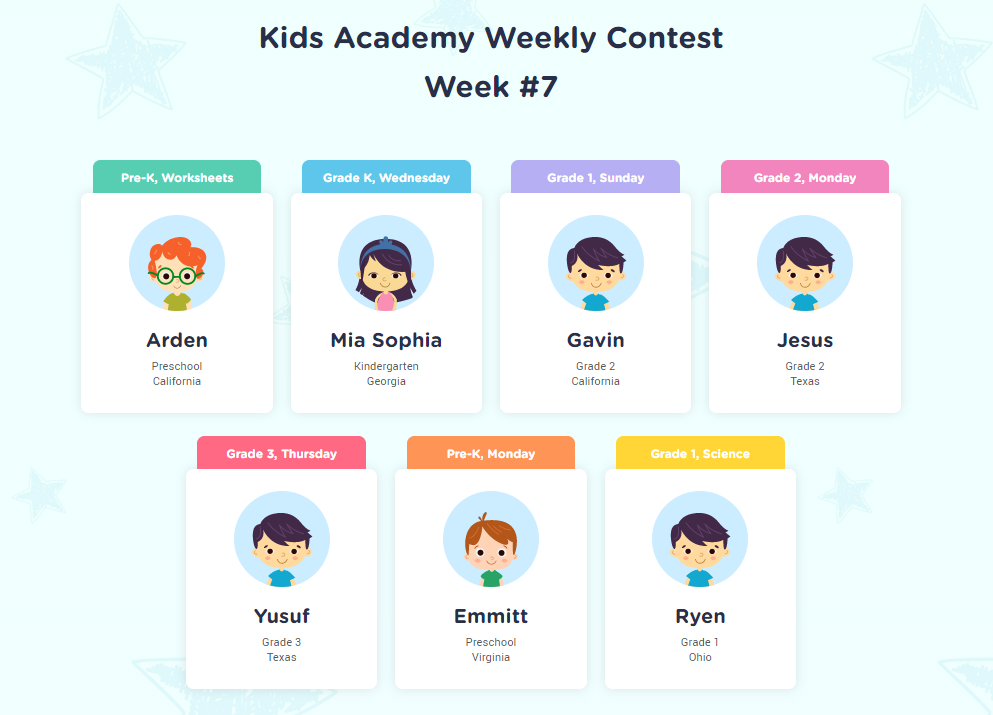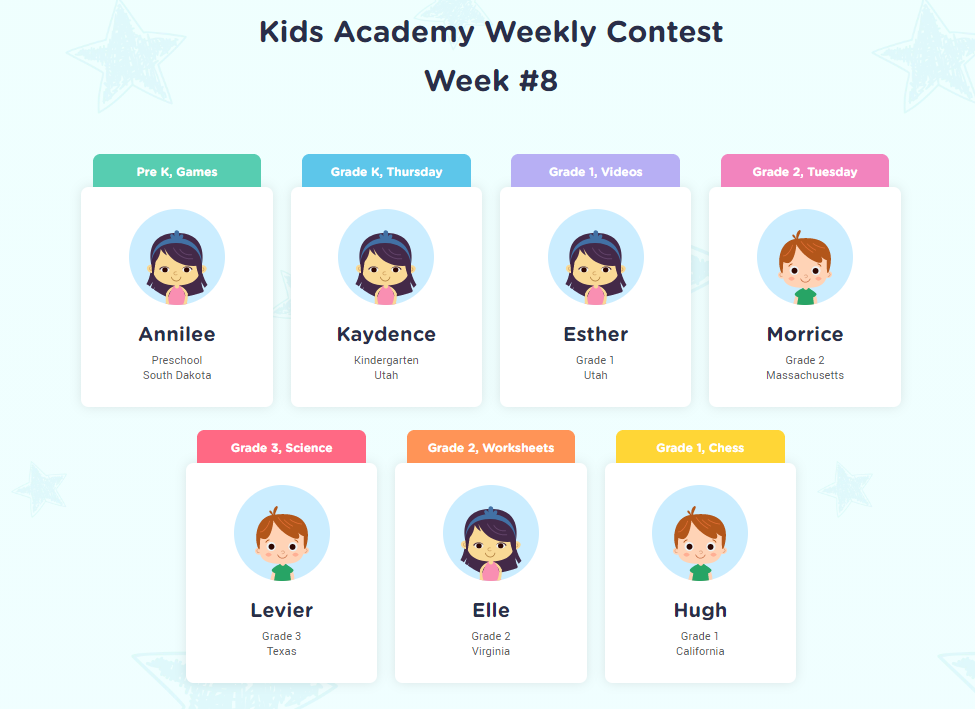Chess strategy understanding Normal Chess Worksheets for Ages 4-6
3 filtered results
-
From - To
Unlock the world of chess for your little ones with our "Chess Strategy Understanding Normal Chess Worksheets" designed for ages 4-6. These engaging and fun worksheets introduce young learners to the basics of chess strategy, helping them develop critical thinking and problem-solving skills through play. Each worksheet encourages creativity and logical reasoning as kids learn to think ahead and anticipate their opponent's moves. By using colorful illustrations and simple activities, we'll make chess accessible and exciting for your child. Start their chess journey today and watch them gain confidence and strategic awareness on the board! Perfect for early education and family bonding.
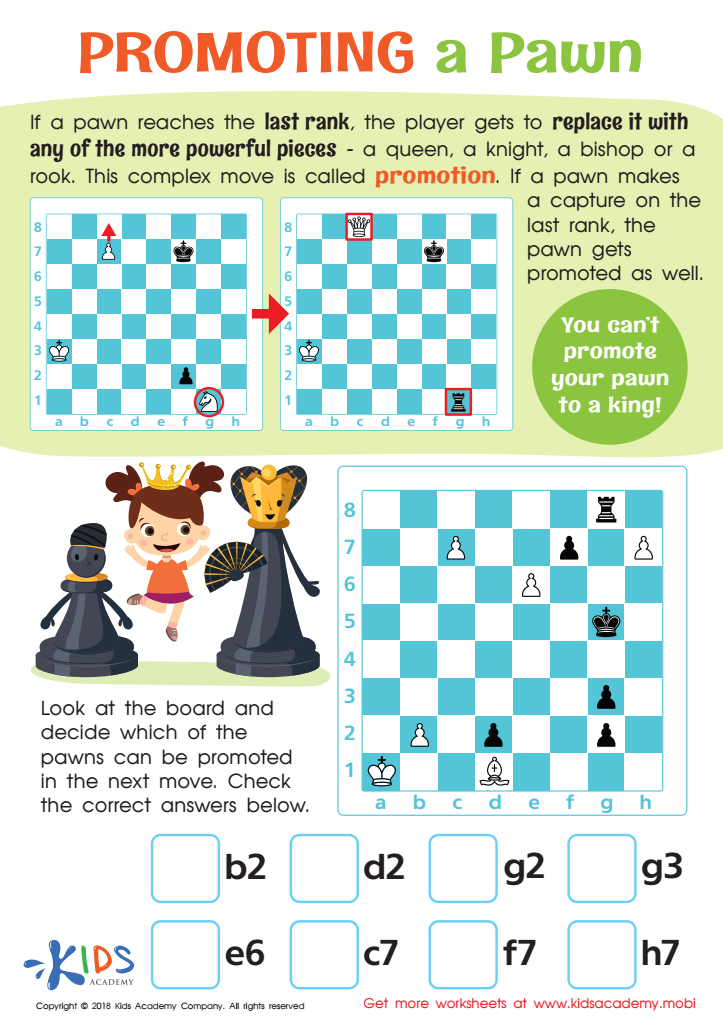

Promoting a Pawn Worksheet
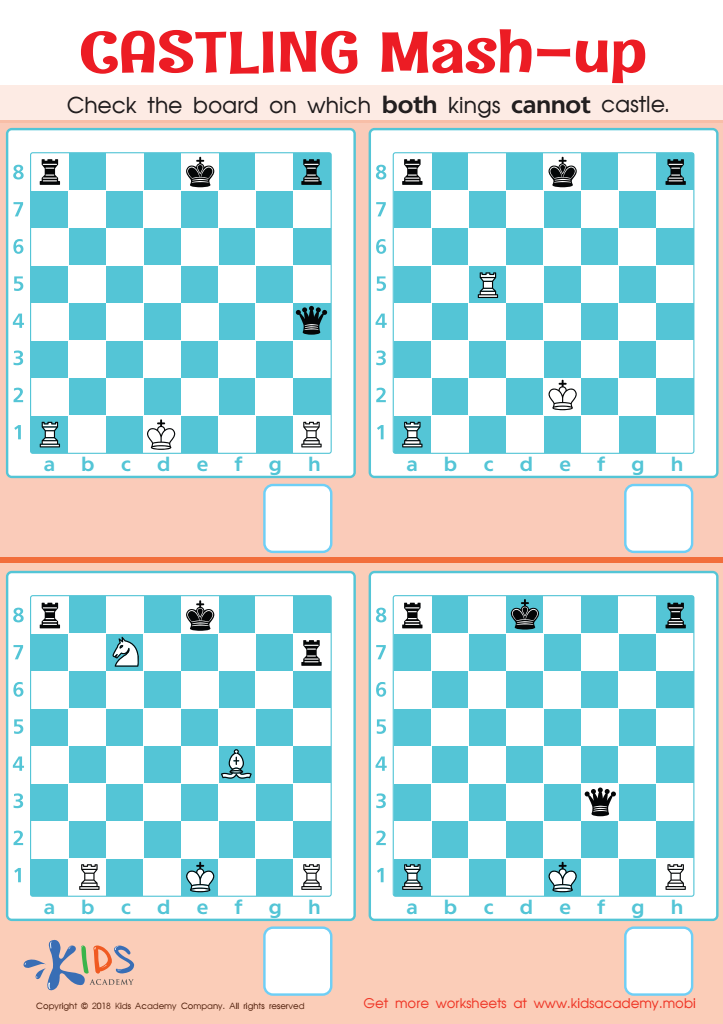

Castling Mash–up Worksheet
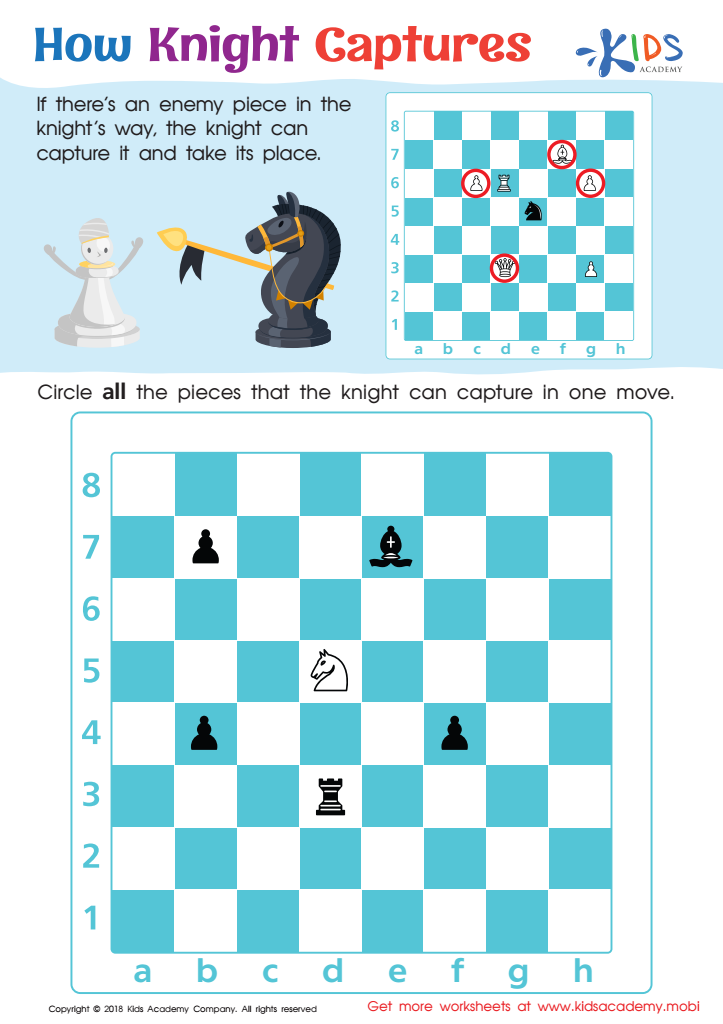

How Knight Captures Worksheet
Understanding chess strategy at an early age, particularly for children aged 4 to 6, can have myriad benefits that extend well beyond the chessboard. Chess is a fantastic tool for cognitive development, encouraging critical thinking, problem-solving, and strategic planning. When parents and teachers introduce young children to chess, they’re not merely teaching a game; they’re helping to cultivate essential life skills.
Chess requires players to think ahead, anticipate their opponent’s moves, and consider various outcomes. This kind of strategic thinking fosters patience and improves decision-making capabilities, lessons that are applicable in many areas of life. Furthermore, playing chess helps enhance concentration and memory, as children must remember not only their strategies but also the patterns and tactics of their opponents.
At this early age, introducing chess also nurtures social skills. Children learn to take turns, handle wins and losses gracefully, and engage with peers in a friendly yet competitive environment. Overall, promoting a fundamental understanding of chess strategy not only makes the game enjoyable but also lays a foundation for academic and personal growth that can benefit children throughout their lives. Thus, investing time and resources in teaching chess is a powerful investment in young learners' futures.
 Assign to My Students
Assign to My Students




